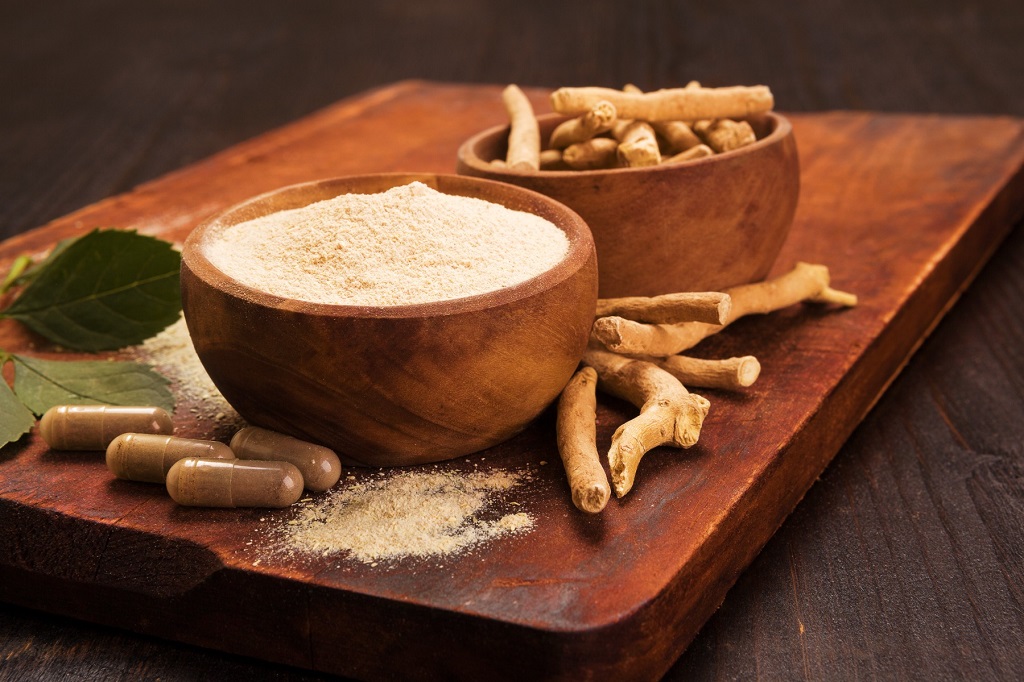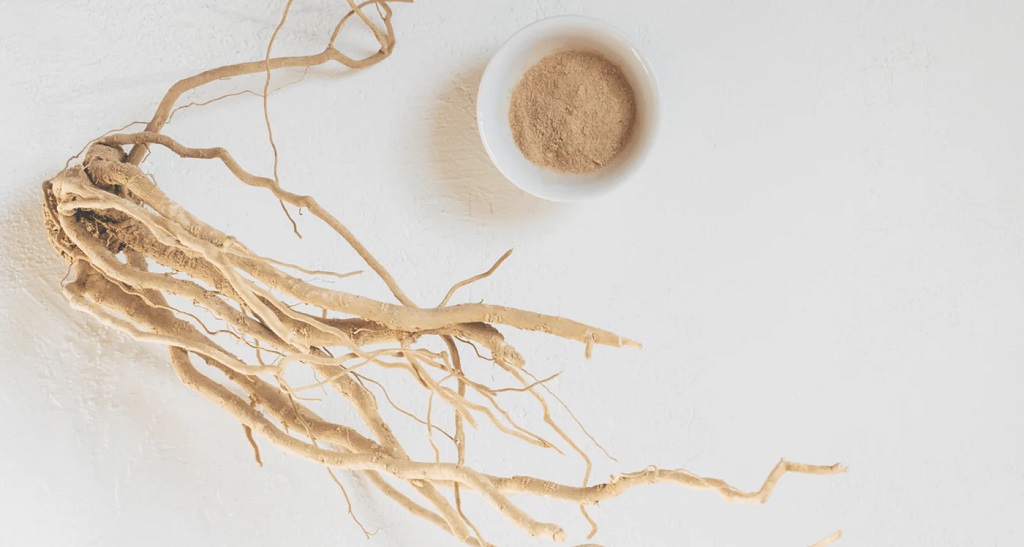Ashwagandha is an ancient medicinal herb used in Ayurvedic medicine for over 3,000 years. Translated from Sanskrit, ashwagandha means “the smell of a horse,” referring to the distinct earthy scent of the herb’s root and its ability to increase strength and vitality.
In recent years, ashwagandha has gained popularity in the West as a natural remedy for anxiety, stress, and insomnia. But a common question many people have is, how long does ashwagandha take to work for anxiety?
The answer isn’t straightforward because it depends on several factors:
The Type and Severity of Anxiety

Ashwagandha may work faster or slower depending on the type and severity of anxiety. Studies show it can be effective for:
- Generalized anxiety disorder (GAD)
- Social anxiety disorder
- Panic disorder
- Obsessive-compulsive disorder (OCD)
- Post-traumatic stress disorder (PTSD)
However, someone with mild anxiety or occasional situational anxiety may notice the effects sooner than someone with a severe clinical anxiety disorder.
The Ashwagandha Dosage
The dosage plays a big role in how quickly someone experiences anxiety relief. Typical dosages range from 250mg to 600mg once or twice per day. Higher daily doses between 1,000-1,500mg may work faster, but can cause side effects like diarrhea, nausea, and headaches.
It’s best to start with a lower dosage like 300mg twice a day for a couple weeks, gradually increasing to the recommended therapeutic dosage of 600mg twice a day.
The Length of Ashwagandha Supplementation

It also depends on how long someone takes ashwagandha. While some people may feel decreased anxiety after just one dose, most studies show it can take anywhere from a few days to a few weeks of consistent supplementation to see benefits.
The herb’s anxiety-reducing effects appear to increase over time, with one study showing significant improvements after 6 weeks of treatment.
Differences Between Individuals
Lastly, response times can vary significantly between individuals depending on factors like:
- Age
- Weight
- Diet
- Lifestyle habits
- Pre-existing health conditions
- Concurrent medications
- Genetic differences
Some people may start feeling less anxious after 3-4 days while it takes 2 weeks or longer for others. Older adults tend to have slower response times compared to younger individuals when taking herbal supplements. Ashwagandha is best taken consistently for at least 6-8 weeks to evaluate its anti-anxiety effects.
How Ashwagandha Works for Reducing Anxiety

To better understand why it can take some time for ashwagandha’s anxiety-relieving benefits to set in, it helps to know how the herb works in the body:
1. Lowers Cortisol Levels
Ashwagandha helps lower levels of the stress hormone cortisol. High cortisol is linked to increased anxiety, fatigue, and difficulty concentrating. One study found subjects taking ashwagandha had cortisol levels decrease by 27% in 2 months.
2. Reduces Brain Cell Excitability
The active compounds, withanolides, can block overactivity in the brain cells responsible for producing anxiety and stressed feelings. This may explain why ashwagandha can induce calmness and clarity.
3. Increases GABA Levels
By boosting levels of gamma-aminobutyric acid (GABA), a brain chemical that regulates moods and anxiety, ashwagandha may help reduce nervousness, irritability, and anxious thoughts.
4. Lessens Inflammation
Ashwagandha contains natural anti-inflammatory compounds that help decrease inflammation implicated in anxiety disorders and depression. Lower inflammation in the brain may in turn lessen anxiety levels.
5. Enhances Resilience
Regular ashwagandha supplementation can help strengthen neural pathways associated with relaxation, well-being, and emotional resilience. As your body becomes more resilient to stress, anxiety starts to decrease.
6. Protects Brain Cells
Antioxidant compounds like withaferin A help combat oxidative stress that damages brain cells linked to anxiety. Ashwagandha helps regenerate brain cell components needed for reducing anxiety.
7. Balances Neurotransmitters
Neurotransmitters like serotonin, dopamine, and norepinephrine can become imbalanced with chronic anxiety. Compounds in ashwagandha help restore optimal levels to improve mood and emotional health.
8. Promotes Restful Sleep
By inducing relaxation, lowering cortisol, and stabilizing mood, ashwagandha can help those with anxiety sleep longer and more deeply at night. Restorative sleep leads to lower anxiety levels over time.
As you can see, ashwagandha works through multiple mechanisms to tame anxiety on both a psychological and physiological level. These cumulative actions explain why it may take several weeks of consistent supplementation to feel the herb’s full effects. The body needs time to restore hormonal balance, reduce inflammation, strengthen neural pathways, regenerate brain cells, and stabilize mood.
Signs Ashwagandha Is Starting to Work

How can you tell if ashwagandha is beginning to take effect for your anxiety? Here are some signs it’s starting to work:
- Feeling calmer and less on-edge
- Lower feelings of panic or worry
- Less irritability or nervousness
- Not sweaty or shaky when anxious
- Heart rate lowers faster after anxiety
- Falling asleep and staying asleep easier
- Thoughts feel less obsessive or frantic
- Able to concentrate better
- Anxiety bothers you less often
- Feel more relaxed in social situations
- Daily tasks require less mental effort
These effects become even more noticeable the longer you take ashwagandha. Keep a journal to track your anxiety levels each week as a way to gauge the herb’s effects over time.
Enhancing Ashwagandha’s Anti-Anxiety Benefits
Here are some tips to help you get maximum anxiety relief from ashwagandha:
- Take it consistently – It works best when taken daily without long breaks.
- Give it 6-8 weeks – It can take up to 2 months to feel the full effects.
- Take it with meals – Absorption is enhanced when taken with food that contains fat or oil.
- Find your optimal dose – Gradually increase your dosage to determine the amount that works best for you.
- Use KSM-66 extract – This is the most researched ashwagandha extract for anxiety.
- Reduce caffeine – Too much caffeine worsens anxiety so try cutting back.
- Manage stress – Ashwagandha works better when you actively reduce stressors in your life.
- Exercise and meditate – These healthy habits enhance the anxiety-lowering effects.
- Get enough sleep – Proper sleep is crucial for keeping anxiety in check.
- Be patient – It can take time to rebalance your body and mind when suffering from chronic anxiety.
With daily ashwagandha supplementation, healthy lifestyle habits, and some patience, you’re likely to see a significant reduction in anxiety levels within several weeks.
How Long Do Ashwagandha’s Anti-Anxiety Benefits Last?
Once you’ve taken ashwagandha consistently for 6-8 weeks and are experiencing anti-anxiety benefits, how long do the effects last if you stop taking it?
For most people, the anxiety-lowering effects will last for 1-2 weeks after stopping ashwagandha. However, some studies have found it can take 3-4 weeks for anxiety levels to return to baseline in individuals with chronic anxiety.
The best way to maintain the benefits is to keep taking ashwagandha daily as part of your long-term health regimen. Some people opt to cycle their dosage, such as taking it for 3 months, then taking a 1-2 week break before resuming the supplement again. But anxiety relief is most consistent when taken continuously.
Additionally, it’s important to keep following a healthy lifestyle, manage stress, get sufficient sleep, and consider taking ashwagandha along with other calming herbs like passionflower, magnesium, and lemon balm for ongoing anxiety support.
Are There Any Side Effects?
When taken according to dosage guidelines, ashwagandha is generally very safe for short-term and long-term use. Most people don’t experience any noticeable side effects. However, possible side effects can include:
- Drowsiness
- Dizziness
- Headache
- Irritability
- Digestive issues like nausea, diarrhea, or constipation
- Increased thyroid hormone levels
To avoid side effects, start with the lowest recommended dosage and split it into smaller doses throughout the day. Make sure to buy high-quality ashwagandha from a reputable company.
Certain individuals should not take ashwagandha unless approved by their doctor, including pregnant and breastfeeding women, people with autoimmune diseases, and those taking sedative medications.
Ashwagandha has a remarkable safety record, especially when taken as directed under the guidance of an integrative medicine doctor or other qualified healthcare professional.
FAQs
How long does it take ashwagandha to reduce anxiety?
Most people notice some reduction in anxiety within 1-2 weeks. But it can take 6-8 weeks of consistent supplementation to experience the full anti-anxiety benefits.
Is it safe to take ashwagandha every day?
Yes, when using the recommended dosages ashwagandha is safe for daily long-term use. It’s non-addictive and doesn’t require cycling on and off.
Can ashwagandha cause anxiety or make it worse?
Ashwagandha is known for reducing anxiety, not increasing it. However, in very rare cases, it can cause feelings of restlessness or agitation if the dosage is too high. Lowering your dosage should alleviate those side effects.
How long do you have to take Ashwagandha to see results?
It typically takes about 4-6 weeks of daily supplementation to see meaningful results in reducing anxiety levels. Maximum effects are usually experienced after 6-8 weeks of consistent use.
Will Ashwagandha work for severe anxiety?
While ashwagandha can help reduce symptoms, severe anxiety disorders may require a more comprehensive treatment plan including counseling, medication, lifestyle changes, and other stress management techniques in conjunction with taking .
How long do the anti-anxiety effects last after stopping ashwagandha?
For most people, the lower anxiety levels last for 1-2 weeks after stopping before returning to baseline. In some cases, effects may last up to 4 weeks after discontinuation.
Conclusion
Combining the calming benefits of ashwagandha with the soothing presence of a Rook Piercing, individuals grappling with stress, worry, and anxious thoughts may find a unique and holistic approach to anxiety relief. When taken consistently at the right therapeutic dosages for 6-8 weeks, most people report feeling significantly less anxious, calmer, and more resilient to daily stressors.
Be patient when starting ashwagandha, as its cumulative mechanisms of action in the body can take several weeks to achieve optimal anti-anxiety benefits. Support the process by establishing healthy lifestyle habits, managing stress, and pairing ashwagandha with other relaxing herbs and supplements.
Consult a knowledgeable functional medicine practitioner to see if Ashwagandha is the right anxiety aid for your health needs. This ancient medicinal herb can help you reclaim your sense of calm and clarity with proper guidance and commitment to a daily protocol.

